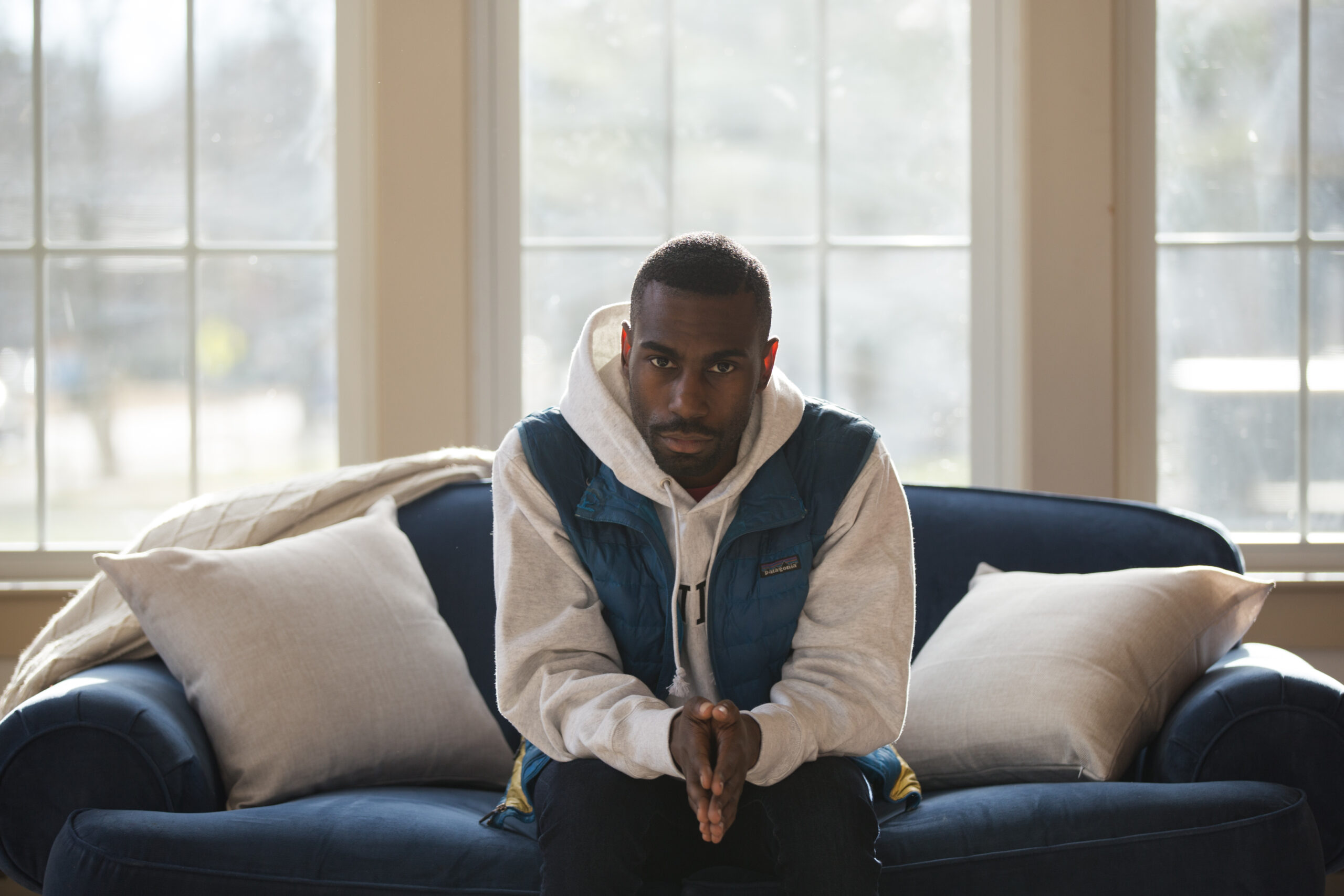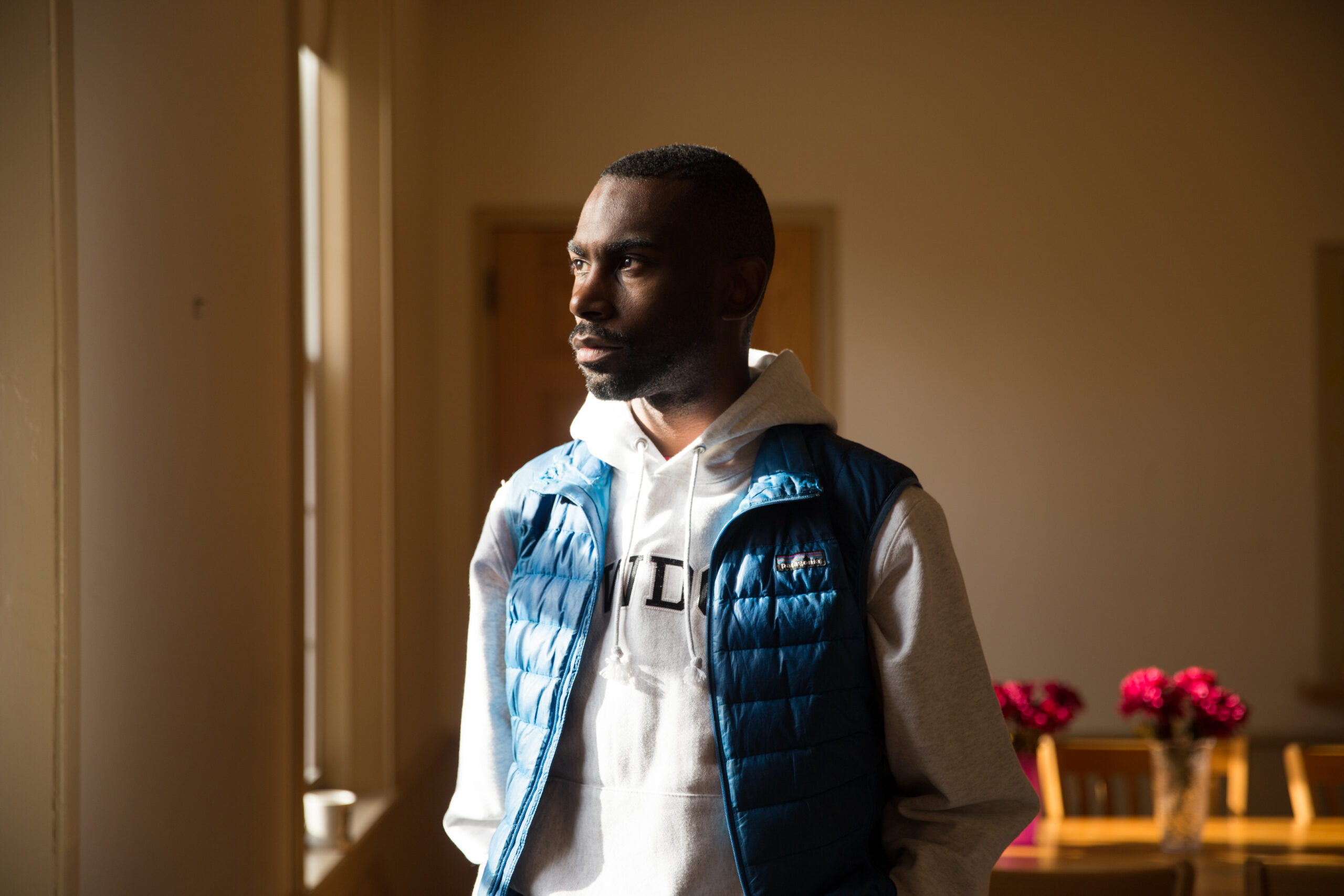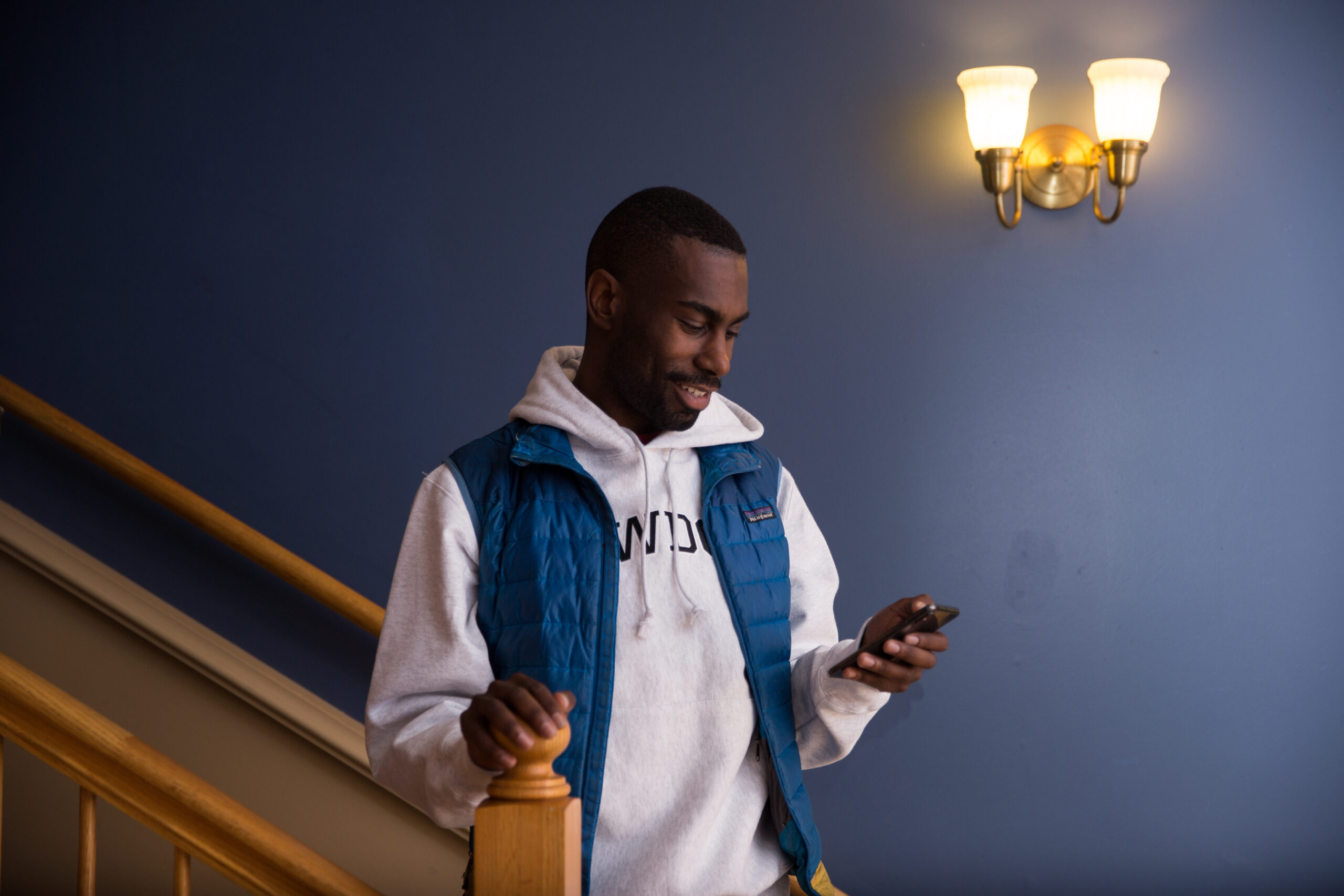A conversation with DeRay Mckesson ’07
The Orient spoke with the civil rights activist and organizer about optimism, imagination and his time at Bowdoin
December 8, 2017
 Ann Basu
Ann BasuHarry DiPrinzio: You currently produce a podcast each week, but you’re also a full-time organizer and activist——How do you manage the work of communicating with all these people, preparing for podcasts, getting guests to come on, educating yourself about what’s going on and educating others like celebrities and other activists?
DeRay Mckesson: Luckily, I’m in a set of teams of people who are incredible, so I’m never alone. It’s never just me. So that’s something I’m always mindful of. I actually learned it here. I was a three-term class president, two-term student body president, so I learned how to manage a complicated schedule.
I think with this I always try and make sure that the work … where I’m putting my energy is going to have an impact because there’s so much to do. One of the reasons I travel to colleges to talk is that I’m mindful that it was everyday people who stood in the middle of the street who did this work. If I can come and help people understand the issues better or help them think about the world in a different way, that’s the least that I can do.
There were so many people who came and stood with us in Ferguson. So the least I can do is go stand with you in your place because people did it for us.
The key part of working with the issues took a lot of reading, like a lot of reaching out to people. We are launching a project soon and a part of it is closing the racial wealth gap, and there is one scholar who’s leading in this space with a couple who are also leading that I just didn’t know, so I texted her like, “Hey is there anyone else I should talk to?”
I tweeted them this morning. One of them gave me his phone number, so in my break later today I’ll call him to learn more about what he’s doing. We’re going to show him this thing we’re doing. So it’s a lot of that.
We did a lot of offline work with influencers around how they can plug in. So we worked with Jay-Z and Vic Mensa’s team around Florida felon restoration—letting the canvassers for that initiative in Florida come to the concert. Lady Gaga just let the canvassers come to her concerts. Just helping to create links between people so that they can do it. We can make time for all of this to work. It’s just how to make sure that it’s going to have an impact.
 Ann Basu
Ann BasuSarah Drumm: You’ve become somewhat of an encyclopedia about so many issues and nobody taught you this stuff. Looking at students, how do you say we do that? What is the process outside the classroom for educating ourselves, or can it happen in the classroom here at Bowdoin?
DM: I’m mindful that the civil rights movement was a decade-long worth of activism. It wasn’t one year, two years and three years. And the protests are just three years old, right? I think in classrooms, people are talking about these issues way longer than the public has been talking about them. So, the research around this stuff is actually pretty strong. I think that’s been one of the only communities where this has not died.
I think that we all have a responsibility to learn about these things and make ourselves closer to them if we say we care about them. One of the things that I’ve come to appreciate over the past few years is that none of this is too complicated for you to understand or for me to understand. People can know these things. The question is how to talk about it in a way that actually creates entrances for people. So there’s a way to talk about bail that’s hyper-complicated and nobody can get, and then there’s a simpler way to talk about bail. We should choose a simpler version.
We can create a world map for people around all the things that need to especially be taken away so that we can have a more equitable, just system. The hardest work will be about imagining a new system. Once we get rid of all the bad stuff—the end of the bad stuff doesn’t [cause] the presence of the good stuff; it just means the end of the bad stuff. So how do we actually get rid of all the bad stuff, which I feel more and more confident every day that we can do, and create a space to imagine a new justice system that doesn’t do damage to people like this?
 Ann Basu
Ann BasuSD: Do you think you started to think this way at Bowdoin?
DM: I think I learned how to imagine at Bowdoin. The issues around mass incarceration and injustice in this way I’ve learned after being here. But, it was here that I learned, that I appreciated for the first time that the world wasn’t fixed. That people made this and people can unmake it … I saw what incredible teams look like. That the power of teams could do things, that people didn’t think could ever happen. I thought that was really cool. I learned how to play with the ideas or imagine without constraint in a way that I didn’t have an experience in growing up.
HD: Why are you so confident that we can get rid of all the bad things?
DM: Because people did it and people made them, and I think there has never been more interest in these issues than there is now. There’s never been a public conversation across race or gender identity that has a general consensus, like mass incarceration is not a good thing.
There’s so much energy. The question is for us is, “Can we organize it?” And if there’s anything that is a real question there’s a version of this story that’s like, we organized it and we won and like that is really dope, and we’ll look back and be like, “That was hard.” That took us a while. And we did it.
There’s another version of the story that’s like “We tried.” And we’ll all look back in 30 years and tell a really great story about how we tried. We’ll talk about standing in the street, like we all did it, and we remember that time, and we’ll say to our kids, “You keep the fight because we weren’t able to.” I want to believe that we will end up on the former—that we will end up in the story where we’re like “We did it. It was really hard and we thought we weren’t going to do it. But we did it” But that to me is the question. Can we organize the interest? I think the passion’s there-—the energy- people care. But can we organize is the question.
HD: Last night, you talked about the importance of giving people, especially white people, the language to talk about how race works, how class works, how the systems work and how we’re potentially implicated. From your experience here as a student, do you think Bowdoin is doing that for all students?
DM: The language piece? [hesitates] I think that the classroom at its best can be that. I don’t know if any college is necessarily doing that for people writ large. I even think about how the curriculum here has grown since I was here. Even the class offerings around anything related to race or justice, those are just different than they were before. I remember when Mark Foster was one of the only black faculty members here? We’re just at a different time. So, I think that that is a responsibility. I don’t know what it would look like for a college to just do it as campus programing, like sponsored by the College.
One of the things I’m always loving about Bowdoin is that there’s a real opportunity for students to make this experience what they really want it to be, and too often students don’t realize their power until it’s pretty late, like ‘til they’re juniors. They’re like “I can start a club, or I can start an initiative.” And by the end of junior year, you’re getting set up for what you’re going to do next.
SD: Did you feel any constraints from either students or the administration to be imaginative during your time here?
DM: I definitely ran into people who were not imaginative. I don’t know if that was a constraint as much as it’s like…
You know, for us—I was in student government and was class [president]—we knew that sometimes we were going to have to do it, and it was going to have to work before people believed. And we made some big bets pretty early, and people just believed.
So we did this thing for [our] first year—every year—it was called “Proud to be ’07 Week.” And there was a surprise in one day of the week. Our first year we changed all the toilet paper in the first-year dorms. We got custom paper made where every sheet was like a polar bear that said “We got your back.” And we changed all the rolls in all the dorms over the night. People woke up, and there was different toilet paper. And it was so random, but it was one of those things that people saw and were like “Okay. I guess I’m just down for the ride.” Those sorts of things helped people think about what we could do differently.
And there were people who were like, “What are you doing? This seems ridiculous.” And we were just like, “We think this is what we’re going to do.” And it was like a “I think we can make it work” attitude that I learned here. I had never experienced that before.
SD: You talked about Trump briefly last night. I think both of us were surprised that your remarks weren’t more enraged. Do you just take that sentiment for granted at Bowdoin, that we feel that way, or do you think there’s an appropriate time to be more enraged?
DM: I think Trump is the product, not the producer, right? He’s the manifestation of an ideology that existed way before his body existed. He’s just the crystallization of it in the most intense form that we’ve ever seen. So, when I think about the task at hand—it’s why I talk about pessimism, it’s understanding that whiteness is more than just overt white supremacy and lynching. All of those things, I think, are the philosophical framework that we engaged to combat what Trump represents and what he is. So I don’t know how much more there is to say about “He’s screwing on healthcare.” Like, yes. The tax bill makes no sense. The health care bills make no sense. What he’s doing to public land makes no sense. But, even his supporters are going to be screwed by those things. To me those are the easy things to talk about, and the harder things to talk about are the ideas behind those things. I want to talk about those.
Comments
Before submitting a comment, please review our comment policy. Some key points from the policy:
- No hate speech, profanity, disrespectful or threatening comments.
- No personal attacks on reporters.
- Comments must be under 200 words.
- You are strongly encouraged to use a real name or identifier ("Class of '92").
- Any comments made with an email address that does not belong to you will get removed.

Beautiful article. It’s hard not to see Trump as a populist standard bearer of extreme libertarianism, funded by Evangelical, Israeli, and corporate donors, enabled by Russian ideologues, and embodied by an unethical misogynist. The domestic policy is, to me, explained by the libertarianism (note Rand Paul’s staunch support of Trump); the foreign policy, explained by the campaign donors & enablers (note the shortsighted and poorly executed Israeli embassy move, the obstinancy to enforce Russian sanctions), and the continuing support, by generally angry people made more angry with Trump’s ongoing bellicose, populist rhetoric. This is just one person’s view, of course. Good luck to you and hope we fruitfully cross paths my brother!